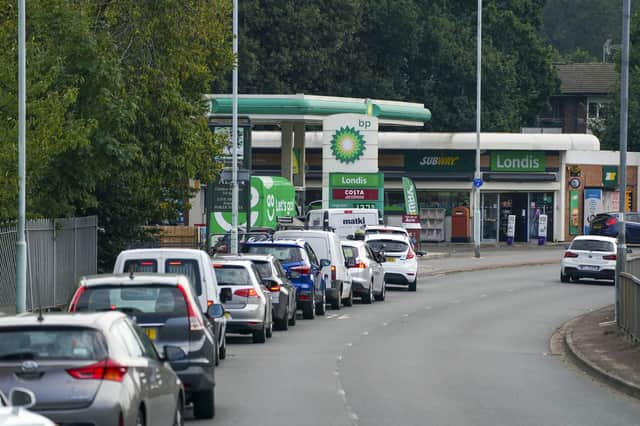Learning not to take lorry drivers for granted - leader comment


Efforts by UK Government ministers to assure motorists there is no shortage of fuel appear to be in vain, and Transport Secretary Grant Shapps has blamed the situation on "irresponsible briefing" to the press after a meeting with hauliers.
But there is a shortage of lorry drivers that has led to some stations shutting. With global supply chain problems contributing to the increasingly common sight of empty or sparse shelves inside supermarkets, the urge to stock up on forecourts outside is unsurprisingly proving irresistible to many.
Advertisement
Hide AdAdvertisement
Hide AdAccording to the Road Haulage Association (RHA), there is now a shortfall of around 100,000 drivers. Even before Covid, the figure stood at around 60,000. The average UK lorry driver is in his mid-50s. During the pandemic, potential new recruits were unable to sit HGV driving tests.
The shortage is not confined to the UK but it has been exacerbated by Brexit. The RHA has said Brexit led to an exodus of 20,000 drivers. Meanwhile, many foreign workers returned home during lockdown and most of them are unlikely to return, with recent tax changes making it more expensive for European drivers to work in the UK.
Mr Shapps has unveiled a temporary visa scheme aimed at bringing 5,000 HGV drivers into the country on three-month contracts, including 100-200 for fuel tankers.
But for many overseas lorry drivers the logistics and expense involved in relocating to the UK only to have to return home again by Christmas Eve will surely be prohibitive.
The Army is already helping alleviate the crisis in healthcare by providing personnel to drive ambulances. Perhaps in the short term they might be needed to drive fuel tankers too.
In the longer term, maybe the lot of UK lorry drivers will improve. They were among the less heralded heroes of the pandemic, ensuring shortages did not become a consequence of the nation going into lockdown. If better pay and conditions for them result from today's problems, that can only be a good thing.